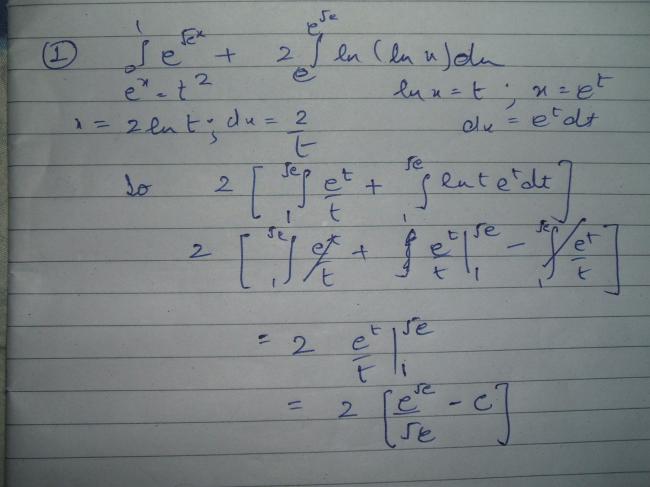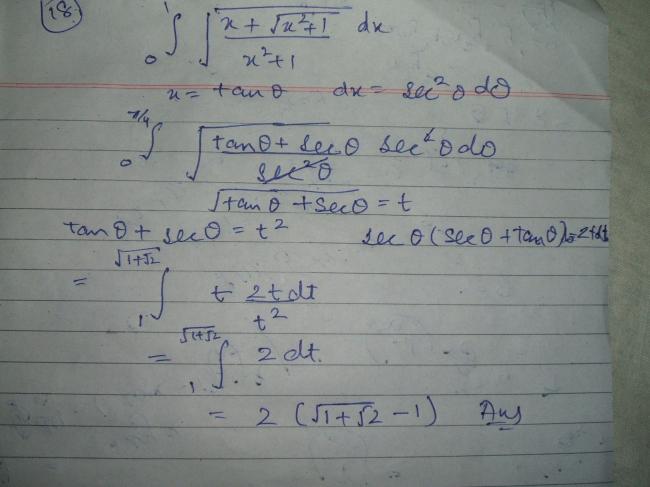41]\displaystyle\lim_{n\to\infty}\displaystyle\sum_{i = 1}^{n}\frac {1}{n + i}
42]\displaystyle\lim_{n\to\infty}\displaystyle\sum_{i = 1}^{n}\frac {2}{n}\left(2 + \frac {2i}{n}\right)^5
43]\displaystyle\lim_{n\to\infty}\displaystyle\sum_{i = 1}^{n}\frac {2}{n}\left(1 + \frac {2i}{n}\right)
44]\displaystyle\lim_{n\to\infty}\displaystyle\sum_{i = 1}^{n}\left(\frac {4}{n} + \frac {32i}{n^2} + \frac {64i^2}{n^3}\right)
45]lim_{n - > \infty}{(1/n!)^{1/n}}
46]\int _0^1 \frac {x^b - 1}{\ln x}dx = ?
47] suppose that f(x) = 0 for all but finitely many points x in [a,b]. Show that f is integrable on [a,b].
48}
http://www.haverford.edu/math/rmanning/teaching_materials/candysched114.pdf
see to that
49]Two discs, each of radius=a are placed one on top of the other. The disc on the top begins to move with a velocity=v such that v α 1/A`, where A` is the area exposed of the stationary disc underneath. Find time taken by the moving disc to completely expose the disc underneath
that bolded part means v is inversely proportional to 1/A`
50] prove that \int sin^{3/2}2\theta sin \theta d \theta = 2 \sqrt{2} \int sin^{5/2} \theta cos ^{3/2} \theta d \theta

